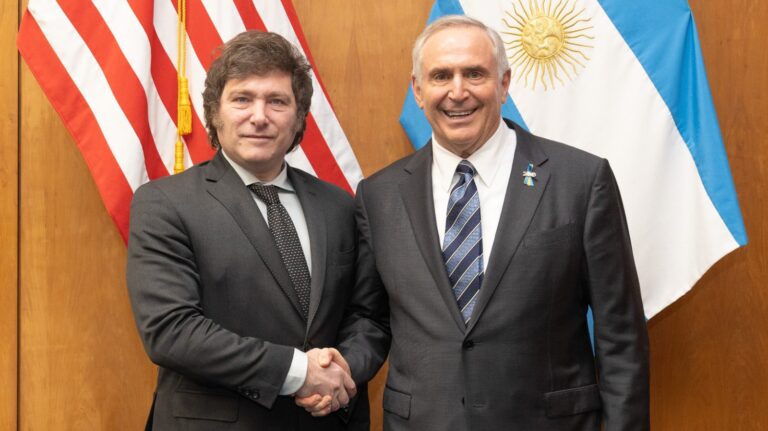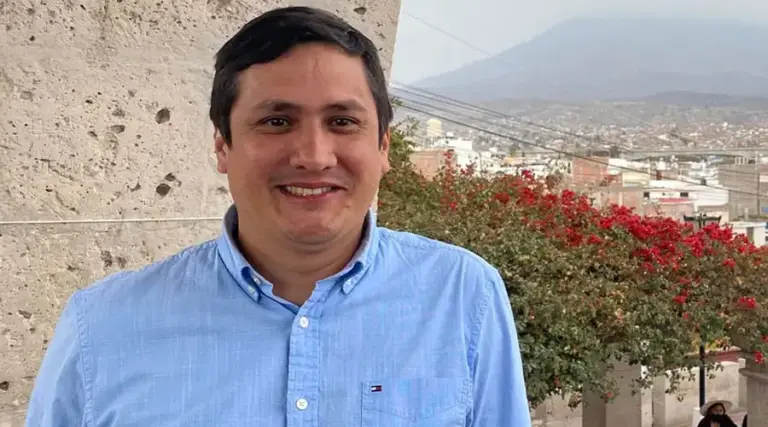Clinton administration policy and sovereignty of nations:
In a presentation at the Second Preparatory Committee for the International Conference on Population and Development on 11 May, 1994, Counselor Tim Wirth stated that: “A government which is violating basic human rights should not hide behind the defense of sovereignty.”
In a March demarch cable to all diplomatic and consular posts outlining the priorities of the Clinton Administration at PrepCom III and the Cairo conference, the Secretary of State (through the Population office) stated that: “The United States believes that access to safe, legal and voluntary abortion is a fundamental right of all women.”
Counselor Wirth at a post-PrepCom III State Department briefing on 25 April 1994 stated: “There are remaining points of debate which will be raised in Cairo… reproductive rights — should anyone be coerced into having or not having a child? There’ve been examples of’ both, where women have been coerced into having children and where there have been forced abortions as well. So the issue of reproductive rights is the fourth issue that has to be defined.”
At a 3 May meeting with the Women’s Political Caucus, Faith Mitchell, Senior Coordinator for Population at the State Department, stated that countries’ pro-natalist policies (and, in-general, tax relief and other incentives to have or not to have children) were a grey area as far as whether these policies constituted coercion” (Talking Points, briefing paper, U.S. Congress).
WHO “benefactor with links to the underworld”:
WHO’s public benefactor, Ryoichi Sasakawa, a “92 year old Japanese billionaire” has provided WHO with 5.3 million pounds a year through his Sasakawa Health Trust Fund. It was the Sasakawa Health Trust Fund which provided funds for the “irregular contracts” awarded to members of the WHO executive board prior to the organizations election vote for Hiroshi Nakajima.
Nakajima’s benefactor, Sasakawa, has in the past “served three years for war crimes committed in China and was an ardent admirer of Mussolini.” He accumulated a fortune through organized gambling on Japanese motor boat racing. He has well-established links with prostitution in the Far East and the Japanese underworld and brags that he has been the drinking partner of Japan’s leading criminal godfather, Yamaguchi-gumi. Sasawaka has a “close and supportive relationship with Hiroshi Nakajima,” WHO’s director general (“The benefactor, with links to the underworld,” Sunday Telegraph, 20 September, 1993).
ICPD population control — passing the costs on to the victims:
“The official delegates [of the ICPD] included NGO delegates .… the NGO representatives were mostly the family planning organizations. They were also from the affiliated bodies of the international family planning organizations such as the International Planned Parenthood Federation (IPPF), the Population Council, International Women’s Health Coalition, family planning associations in different countries (FPAs) and various organizations closely related to Rockefeller [and] the Ford Foundation .…
“Very few development NGOs showed up. Among the environmental NGOs, those who strongly believe that population is the cause of “environmental degradation” were represented but those who question the consumption pattern were absent. There was hardly any representation of the people’s groups .…
“The G-77 countries (consisting of 130 developing countries and China) also urged [the ICPD] to bring back the “D” (development) in the discussion .… In fact, according to the G-77 spokesperson, it was G-77 that has put the “D” in the original proposal .…
“In the last analysis, the PrepCom III was about mobilization and allocation of funds. The draft of the final document prepared by the Conference Secretariat (UNFPA) called for population programmes to mobilize and allocate $13.2 billion in the year 2000, $14.4 billion in 2005, $16.1 billion in 2010 and $17 billion in 2015 .… For population controllers like Werner Fornos (Population Institute), the two-third share of the cost to be provided by the developing countries themselves will be for the benefit of these countries, so they must spend this money. According to [Fornos], “That amount should be easily met by a developing world that accrues economic benefits from smaller families” (Farida Akhter, “From ICP to ICPD to ICPC?” [From International Con- ference on Population to International Conference on Population and Development to International Conference on Population Control?], The Daily Star, Dhaka, 9 May 1994).
India to distribute ‘controversial contraceptive’ DepoProvera:
The Indian government ignored protests from social welfare groups and proceeded with promotional plans for the distribution of the injectable drug DepoProvera. It is being brought to India by Max India Limited and the U.S. Upjohn Company (“India to market ‘controversial contraceptive,” The Financial Express, 10 May 1994).
DepoProvera (depot-medroxyprogesterone acetate) is a provider-controlled injectable contraceptive administered every three months. The drug was initially refused approval by the U.S. Food and Drug Administration (FDA) due to observance of breast tumors in test animals. That approval has been granted.
Most women using Depo- Provera experience the disruption of menstrual bleeding or amenhorrea. By the 12th month of usage, amenhorrea has been reported by 57% of the women, and by the 24th month, amenhorrea was reported by 68% of users. Bone mineral changes occur which could increase risk of developing bone fractures. Amenhorrea and infertility for as long as 18 months has been observed among women injected frequently even after discontinuation (Physicians Desk Reference 1994, Medical Economics Data Production, 2414-2417).
In addition, cancer risks for women under the age of 35 may include a slightly increased risk of breast cancer and a statistically insignificant risk of invasive squamous cell cervical cancer (RR 1.22 to 1.28). Physicians are warned to be alert for symptoms of thrombophlebitis, pulmonary embolism, cerebrovascular disorders and retinal thrombosis in users. Medication is not to be re-administered if there is a sudden partial or complete loss of vision (Ibid ).
There have been reports of low birth weight and neonatal death in infants conceived close to the time of the injection. DepoProvera can be passed to the nursing infant in the breast milk. There are no long term testing results for infants who have been exposed to such drugs during lactation (Ibid ).
Other possible adverse reactions include weight changes, headache, nervousness, abdominal discomfort, dizziness, weak- ness or fatigue, depressed libido, leg cramps, depression, nausea, insomnia, acne, vaginitis, pelvic pain, breast pain, lack of hair growth, bloating, rash, edema, and hot flashes (Ibid .)
Japan pledges population control funding:
Japan has again strengthened its financial commitment to “global population problems” by increasing its contribution to the United Nations Population Fund (UNFPA) and the International Planned Parenthood Federation (IPPF) to US$67.10 million in fiscal year 1994 (April 1, 1994-March 31, 1995). The figure represents an increase of $3.8 million (6.0%) over its $63.30 million contribution in 1993.
With the 1994 contribution, Japan remains the biggest donor to UNFPA. Japan began providing financial assistance to UNFPA in 1971 with an initial contribution of US$l.5 million. This year’s contribution to IPPF out of the total contribution of $63.30 million has not been decided, but it will exceed the $16.9 million provided to IPPF in 1993 (Japan pledges US$67.10 million to multilateral agencies in fiscal 1994,” JOICFP News, June 1994).
Euthanasia in Britain:
The Report of the House of Lords Select Committee on Medical Ethics, published on February 17th, bolted and barred the front door against legalized euthanasia, but did not rule out “back door” euthanasia via living wills, advance directives and withdrawal of food and fluids.
The committee failed to agree on whether starvation and dehydration should ever be allowed. However, they ruled out creating a special offence of mercy killing, criticizing the mandatory form of words in sentencing for murder which seems to deny flexibility.
Legal opinion has been given that living wills are binding in effect. The Under-Secretary for Health, Mr. Tom Sackville, MP, in an address to a group of doctors, has stated that a medical practitioner opposed to withdrawing food and fluids from seriously-ill patients (as the Voluntary Euthanasia Society’s Will requests) must hand the case over to another doctor (The Universe, 21 Jan. 1994).
Dr. Michael Dulake, speaking for the Guild of Catholic Doctors, protested, “It’s illogical to expect a doctor to transfer the case of a patient to another doctor who will do precisely that which the referring doctor regards as unethical” (Baroness Cumberlege, “Select committee leaves back door open,” Hansard, 9 May 1994, 1408).
Controlling the “rural masses” in Bangladesh:
The New Nation reports “One reason why the family planning programme could not make sufficient headway is the permanent method could not be made the king pin of the programme.” The “non-permanent methods” however are seen as “not only unsuitable but even unaffordable” for the “poverty stricken rural masses.”
Undeterred by the health scandals and human rights violations in sterilization camps of the past, the report continued, “The sterilization camps of the past were hardly a glowing success but these were useful activities and it is not clear why they were abandoned.” Looking ruefully at the ineffective persuasiveness of the “improvement in communication the report decries the fact that “the rural masses remain outside the ambit of the program of persuasion called motivation.” However, with hope in his heart, the author looks to the future: “It is time that a practical strategy geared to the needs and priorities of the common people were adopted” and a “more vigorous persuasion and education campaign were launched” (“Family planning time is running out,” The New Nation, 5 June 1994).
International entrepreneurship in Russia:
The German magazine Stern has recently reported the Moscow opening of “the largest bank in the world” of “medical raw materials.” The “raw materials” are collected at the Moscow International Institute of Biological Medicine and in the Russian Center of Perinatology and Obstetrics. The institutions provide organ and tissue transplants by recruiting women for abortion through newspaper ads. The ads offer, “fast and free abortion for scientific purposes!” The “business” has been developed in the Moscow institutions for the purpose of providing organ transplants by M. Molnar an American entrepreneur. A fee of $8,000 is demanded for each transplant.
Stern has published shocking photos: a midwife holding a boy with the umbilical still attached, “a helpless living being, reacting to the cold operating room, raises his tine hands to his yet blind eyes.” In a few minutes, according to the article, “he will be dismembered in a most routine way” and packed up in plastic bags to be frozen — brain, heart, liver, kidneys, glands. Molnar maintains, “This center is my gift to mankind.” He was previously denied similar business opportunities in Serbia and Czechoslovakia. “We exploit the peculiar situation in Russia,” said Molnar (Stern, no. 6, 1993). Molnar’s reference to exploitation is a bizarre understatement.










